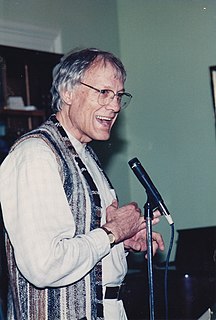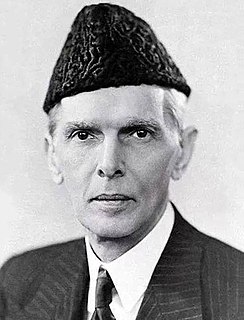A Quote by Mahatma Gandhi
Nonviolent non-co-operators can only succeed when they have succeeded in attaining control over the hooligans of India.
Related Quotes
In 1989, thirteen nations comprising 1,695,000 people experienced nonviolent revolutions that succeeded beyond anyone's wildest expectations . . . If we add all the countries touched by major nonviolent actions in our century (the Philippines, South Africa . . . the independence movement in India . . .) the figure reaches 3,337,400,000, a staggering 65% of humanity! All this in the teeth of the assertion, endlessly repeated, that nonviolence doesn't work in the 'real' world.
I myself would go for nonviolence if it was consistent, if everybody was going to be nonviolent all the time. I'd say, okay, let's get with it, we'll all be nonviolent. But I don't go along with any kind of nonviolence unless everybody's going to be nonviolent. If they make the Ku Klux Klan nonviolent, I'll be nonviolent. If they make the White Citizens Council nonviolent, I'll be nonviolent. But as long as you've got somebody else not being nonviolent, I don't want anybody coming to me talking any nonviolent talk.
I define democracy as control by the people. Slaves are those who allow others to control their lives. Insofar as people succeed in solving their problems fairly and efficiently at a grassroots level, they retain control over their lives. Insofar as they delegate their problem solving to a higher authority, they lose control over their lives.
Certain countries long ago succeeded where the U.S. has failed in commercializing their air traffic control systems, putting them in the hands of private or quasi-private operators able to raise capital, charge fees, and invest in growth, free of meddling by congressional pork barons. You want a drone-friendly air traffic control system? This is the place to start. Our FAA isn't blindly anti-drone but simply marooned in a system that still needs thousands of eyeballs gazing at radar terminals and out of cockpit windshields.
I remember talking to, 40 years ago, one of the leading people in the government who was involved in arms control, pressing for arms control measures, détente, and so on. He's very high up, and we were talking about whether arms control could succeed. And only partially as a joke he said, "Well it might succeed if the high tech industry makes more profit from arms control than it can make from weapons-related research and production. If we get to that tipping point maybe arms control will work." He was partially joking but there's a truth that lies behind it.
The Indian government has managed to turn the concept of nonviolence on its head. Nonviolent resistance and nonviolent governance. Unlike, say, China or Turkey or Indonesia, India doesn't mow down its people. It doesn't kill people who are refusing to move. It just waits it out. It continues to do what it has to do and ignores the consequences.
It is not that I do not get angry. I don't give vent to my anger. I cultivate the quality of patience as angerlessness, and generally speaking, I succeed. But I only control my anger when it comes. How I find it possible to control it would be a useless question, for it is a habit that everyone must cultivate and must succeed in forming by constant practice.
You always want to try, in everything you do, to attempt something you've never tried before, and the only way to succeed at that is through failure, and the only way to succeed through failure is just banging your head against the wall over and over until you get to that interesting thing on the other side.
If Christian people work together, they can succeed during this decade in winning back control of the institutions that have been taken from them over the past 70 years. Expect confrontations that will be not only unpleasant but at times physically bloody. When it is over, I am convinced God's people will emerge victorious.
Let those men who still have these misguided ideas, let those men who still have these hallucinations, realize that by anarchism, by dastardly crimes, they cannot bring about good government; let them realize that these methods have not succeeded in any country of the world and are not likely to succeed in India.







































